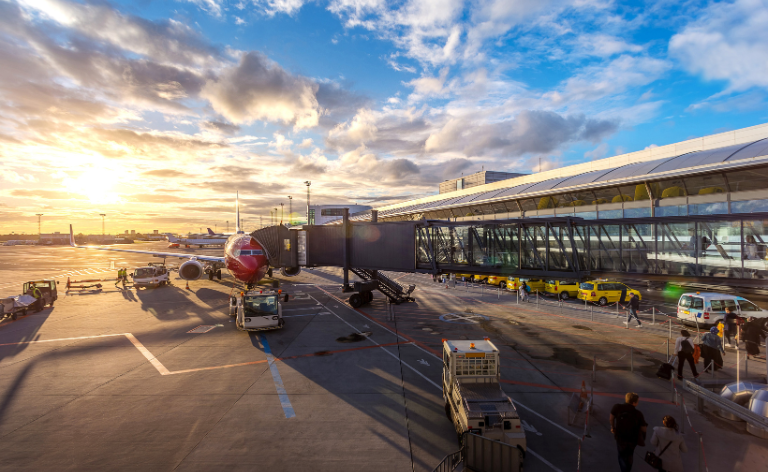Why is Travel Across Africa so Expensive?

Africa is a breathtaking continent, brimming with potential and boasting countless stunning sites waiting to be explored. In recent years, navigating the continent has become more accessible. This is due to a reduction in travel barriers such as visas. Some countries have opted for a visa-on-arrival policy. Despite these positive changes, the cost of exploring this vast and diverse region remains notably high compared to other areas, and several underlying factors contribute to this challenge.
Renowned British-Nigerian actress and content creator Toni Tone shared on Twitter last year how she managed to visit several European countries for less than 100 pounds per trip, creating a stark contrast. This information led me to ponder: why does Africa present a different scenario, and why can’t we enjoy similar travel experiences despite our evident potential? Is potential the only aspect we will ever possess as a continent, or will we eventually achieve our destined thriving state?
A recent example underscores this point—the 2024 African Nations Cup in Cote d’Ivoire. During the Nigeria vs. Equatorial Guinea match, a stadium designed for 50,000 football fans was mostly empty, with only about eight thousand supporters present. This emptiness highlights the challenges people face in travelling for significant events within the continent.
Air transport is the primary means of moving across Africa due to the lack of rail lines and well-connected roads. However, air transport on the continent is approximately 45 percent more expensive than on other continents. The Yamoussoukro Decision 2000 aimed to liberalize African air transport services, fostering fair competition, reducing airfares, and increasing connectivity. Despite its noble goals, full implementation has been slow, and hindered by challenges. Some of these challenges include; regulatory barriers, limited infrastructure, and protectionist policies.
Poor infrastructure is a significant hurdle for travel. This is because most African countries lack the necessary infrastructure for interconnectivity, like high-speed rail lines or wide intercontinental highways. The availability of these infrastructures helps facilitate movement between countries. This infrastructure gap starkly contrasts Europe, which boasts efficient rail lines connecting nations, well-equipped airports, and intercontinental highways, facilitating seamless travel.
Africa also suffers from a shortage of flights connecting countries, resulting in numerous layovers to meet demand. For instance, there was a time when there was no direct flight from Nigeria to Mali. Passengers had to go to Paris before connecting back to Mali. Therefore, a journey of four and a half hours took over twenty-four hours. Moreover, jet fuel prices in Africa are substantially higher than in Europe due to multiple factors like fuel importation and logistical challenges, causing flight ticket prices to soar. Also, most sovereign African states are reluctant to open their skies to airlines to land in their country.

Furthermore, travel between African countries is often viewed as an elitist pursuit, reflected in the high prices that limit accessibility. Many individuals undertake trips primarily due to work-related opportunities rather than for leisure or exploration purposes. Therefore, the travel demand is low across the continent when compared to places on other continents. Due to low demand, prices keep rising to maximize profit.
Another significant challenge is fluctuating exchange rates. The exchange rates across different African countries have surged in comparison to the dollar over the years. This surge impacted travel costs significantly. For example, a decade ago, a flight ticket priced at 120,000 naira could now cost approximately 960,000 naira. This increase makes vacations unaffordable for many. Unfortunately, this increase has not led to an increase in the salaries or lifestyles of different individuals. Therefore, a vacation is not a priority on the list.
Also, despite being relatively organized, the aviation sector faces high government-imposed taxes, contributing to increased travel expenses. Additionally, while some intercontinental agreements exist between countries, such as the Yamoussoukro Agreement of 2000, lack of adherence leads to various fees for travellers navigating these nations.
Moving forward, addressing these challenges is crucial. Investing in infrastructure like better-equipped airports, improved rail lines, and highways is essential to facilitate smoother movement across the continent. However, such improvements must go hand in hand with addressing security concerns. Terrorist groups currently pose a threat to travel in sub-Saharan Africa.
Furthermore, to reshape the narrative around travel, there is a need to alter the perception of travel from an elitist endeavour to something accessible to more individuals and families. Collaborative efforts among African nations, similar to the ECOWAS for free movement, can facilitate navigation and streamline travel processes, potentially alleviating the existing challenges.
In summary, reshaping the narrative around travel in Africa requires concerted efforts to enhance infrastructure, alter perceptions, and foster collaboration among nations, ultimately unlocking the continent’s wealth for everyone to explore and appreciate.
For more stories on African travel click here









Long read, but well detailed and educative.